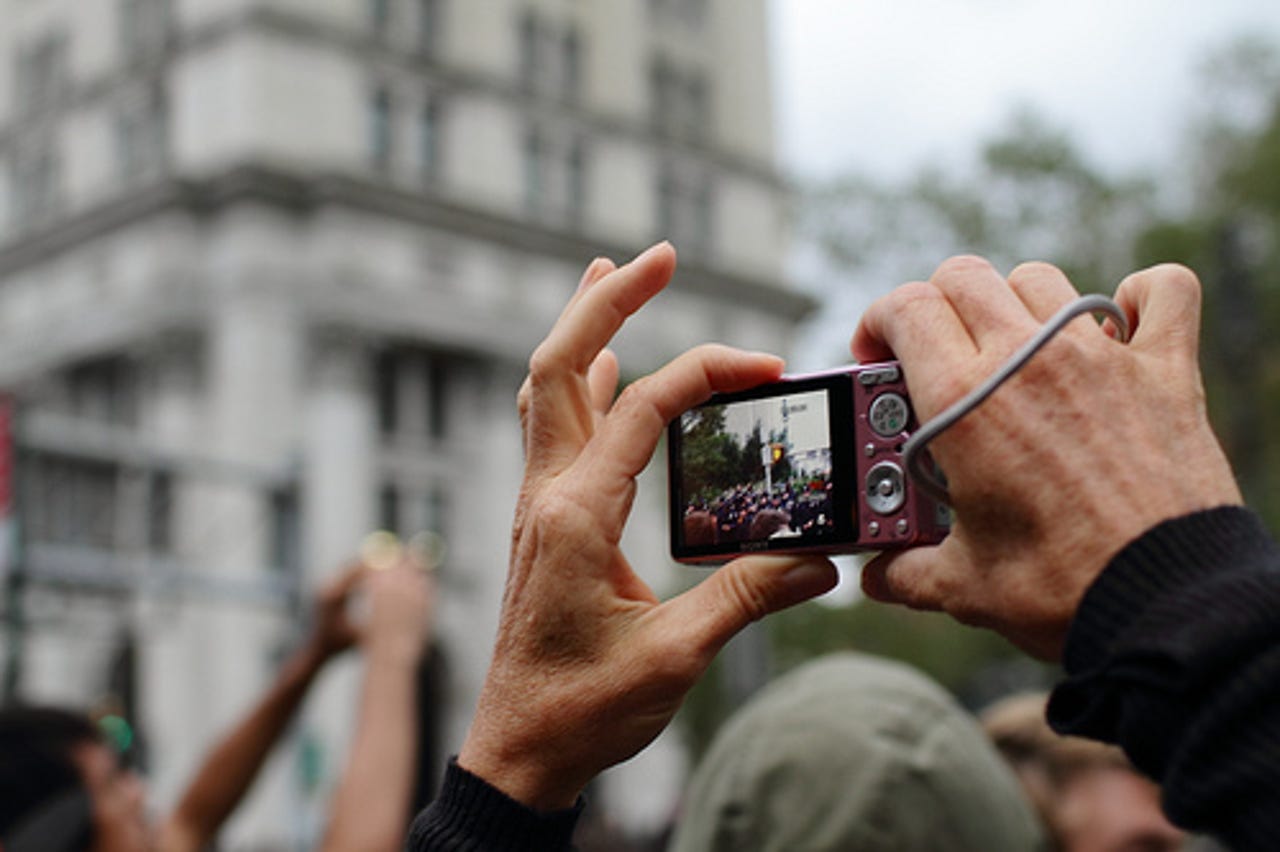Occupy Journalism: The cultural shift in citizen broadcasting

Tim Pool, a 25-year-old protester turned independent broadcaster, has been using his Samsung Galaxy S II to stream the full events of Occupy Wall Street. There's no fancy camera equipment, no deadlines and no sponsorship.
After police in full riot gear evicted thousands of protesters from Zuccotti Park in New York, with members of the media unable to access the area, Pool and other protesters took matters in to their own hands.
Pool began streaming his live coverage from Ustream, a live service with millions of subscribers. After the eviction took place, Pool said: "We’ve seen one of the scariest, heart-racing nights, [...] it’s really bringing everyone together."
The 21-hour stream catapulted Pool to online fame as it went viral on Twitter. The broadcasting effort, it seems, created a strong bond in the protesting community.
Unfiltered and unedited, the stream was featured on a number of broadcasting channels, and provided what camera crews could not.
It started with just one man and his smartphone. But how far could 'citizen journalism' go in altering the general public's view on events?
Could Generation Y end up trusting user-generated content more than official press releases as it continues to balloon and expand?

Sometimes footage released online is 'accidental journalism', and can be uploaded with detrimental effects to official press releases.
A chance bystander, or a witness viewing a riot, a personal account can add another facet to a news broadcast that may have not been available 20 years ago. Considering this, the increase in user-generated content needs to be taken thoughtfully in to account by any media outlet that indulges in spin.
A single person who stands at the sidelines with their camera has the potential to derail and embarrass any media corporation.
Online broadcasts, at least currently in the West, allow for immediate global viewing. This can cause instant accountability for those involved in the situation, whether public figures, the police, or individuals themselves.
You want to know what's happening at UC Davis? Go on YouTube. How about OWS updates? Head over to Twitter.
Social media networks are expanding at an incredible rate. Studies suggest that people find them unreliable, but when you click on the link to a witness video of the latest riot, citizen journalism can help an audience form their own opinion.
Subjective witness reports, video documenting incidents -- it can all contribute to a greater understanding of the subject itself.
Objective media can be viewed, both image and video, and allows for subjective experience and opinions to be formed. It can take traditional journalism one-step further by allowing the audience to experience something for themselves rather than simply read it in traditional print.
'People-powered' news services like Blottr and an expanding range of citizen journalism sites are also on the rise. Whether it is a loose collaboration of writers and bloggers, or streaming platforms like Ustream and YouTube, now the general public are able to report on, collaborate and discover 'breaking news' as it happens.
Not all reporting is without some form of bias like that of the reporter themselves, but video media often allows an audience to view raw footage that may not be available through traditional, editing outlets.
The web has granted people the power to transmit information that was once reserved only for large corporations, who often have an agenda. Whether 'semi-independent' -- for example, posting commentary alongside news sites -- or 'independent' -- outside of traditional media outlets, citizen journalism has the opportunity to report on not only localised events.
But global concerns and give more subjective accounts of proceedings.
Paul Bradshaw has written that citizen journalism takes us “from a world where members of the public needed the news industry for information, to one where they can access and produce it themselves."
I would take this a step further. It is not only that citizens are able to produce news themselves, but also journalists are now also able to draw on them for stories to an extent not seen before.
Some commentary can be editorially valuable. or example, the BBC’s question on its website asking people to tell them where they bought their fuel if they had had a problem engine was the most accurate data gained about the areas problem petrol was being sold. It can also enrich experiences, such as questions, from the general public being tweeted and answered in live stream conferences.
There are, of course, disadvantages to this.
By having intense interaction between journalists and audiences through these platforms, it's not only beneficial discussion that can be generated. Internet 'trolls', hate campaigns against journalists, and even death threats all exist.
The Occupy Wall Street citizen broadcasting movement in itself is one example of how the Internet is allowing eyewitness reports, photos and videos to be logged everyday without censure or control. Though, there have been suggestions that police were confiscating laptops and destroying recording equipment in an effort to control the 'uprising' of unrestricted broadcasting.
Syria attempted banned the use of iPhones to try and control information leaving the country, amid fear it could be used by Western media outlets.
Citizen journalism causes power shifts.
The questions are: how valuable will we view such commentary and media streams in the future, and what additional parts the Generation Y will play in the forming of future journalism?
Related: